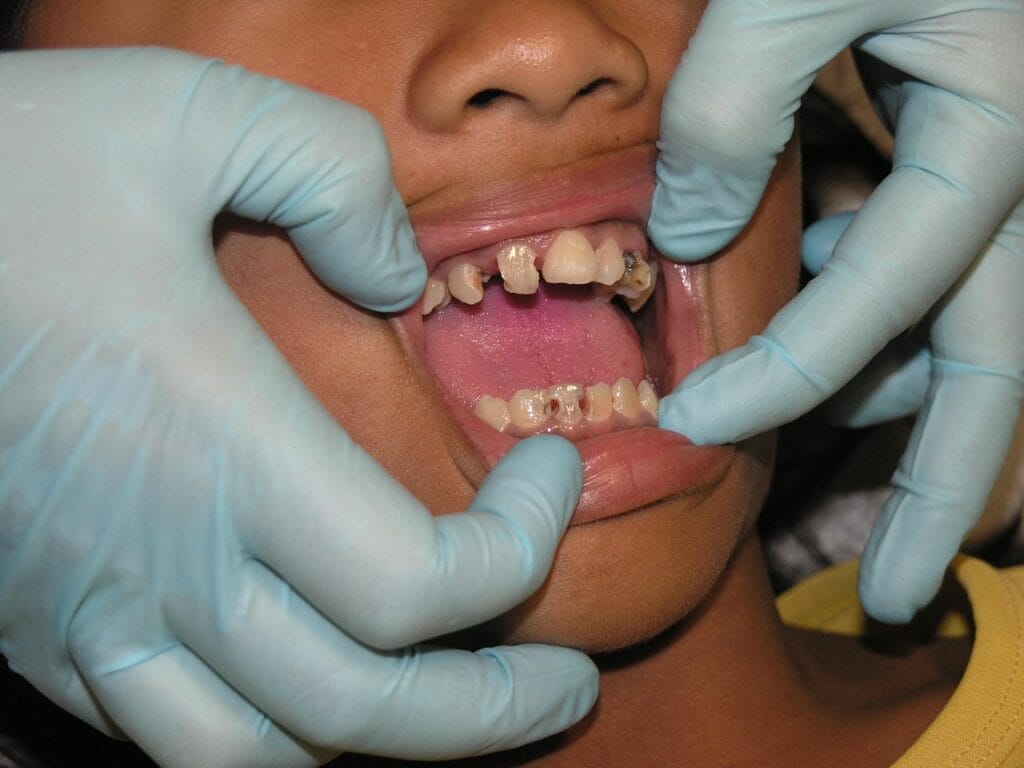FREE SHIPPING OVER $50
7 Everyday Habits That Quietly Destroy Your Teeth—Dentists Say #4 Is the Worst

You brush twice a day, you floss (most days), and you are confident you are doing a good job protecting your teeth. Yet, at your next appointment, your dentist finds a new cavity or a sign of gum recession. It is a frustrating and confusing scenario that millions of people experience. The truth is, your dental health is a product of more than just your brushing routine; it is a direct reflection of the small, unconscious habits you do every day. These habits are so common and seemingly harmless that you would never suspect they are slowly and quietly destroying your teeth and gums.
We are going to pull back the curtain on these silent saboteurs and reveal what dentists say are the seven most common habits that can lead to a lifetime of dental pain, expensive procedures, and an unhealthy smile. We will also reveal the single worst habit on this list—a mistake that dentists see causing irreparable damage almost every day. By understanding the science behind these habits and making small changes, you can take control of your oral health and protect your smile for years to come.
The Secret Behind a Healthy Smile: It’s All About Your Habits
The human mouth is a delicate ecosystem. It is filled with a complex balance of bacteria, acids, and saliva that are all at work to either protect or harm your teeth and gums. Your daily habits directly influence this balance. When you repeatedly expose your teeth to actions or foods that increase acid or cause physical trauma, you are creating an environment where enamel erosion and gum disease can thrive. This is why even a seemingly perfect brushing routine can be undermined by small, destructive habits. These small actions add up over time, and the cumulative effect can be devastating.
7 Habits That Quietly Destroy Your Teeth and Gums
1. Brushing Too Hard
You might think that brushing with more force means a cleaner mouth, but dentists say this is one of the most common and damaging mistakes. Brushing with too much pressure can wear down your tooth enamel, which is the hard, protective outer layer of your teeth. Once enamel is gone, it is gone for good, leaving the sensitive dentin underneath exposed. Overly aggressive brushing can also cause your gums to recede, which exposes the vulnerable roots of your teeth and makes them more susceptible to decay and sensitivity.
The Fix: Use a soft-bristled toothbrush and a light, circular motion. Think of it more as a gentle massage for your teeth and gums than a scrubbing motion. A good rule of thumb is to hold the brush like a pen, which naturally limits the amount of pressure you can apply.
2. Using Your Teeth as a Tool
Your teeth are made for chewing food, not for opening bags of chips, biting off tags, or cracking nutshells. While it might seem convenient at the moment, using your teeth as a tool can cause immediate and long-term damage. This can lead to chipped teeth, which can be painful and require a trip to the dentist for a simple fix, or worse, can lead to a cracked tooth that requires a more extensive and expensive procedure.
The Fix: Take a moment to find a pair of scissors or a tool designed for the job. It is a small change in habit that can save your teeth from a major emergency.
3. Constant Snacking Throughout the Day
Every time you eat or drink something other than water, the bacteria in your mouth produce acid that attacks your teeth. Your saliva works to neutralize this acid and remineralize your enamel, but this process takes time. If you are constantly snacking throughout the day, you are putting your teeth under a continuous acid attack. This never-ending cycle of acid production does not give your enamel a chance to recover, which can accelerate enamel erosion and lead to cavities.
The Fix: Try to limit your eating to mealtimes and avoid snacking between meals. If you do snack, choose tooth-friendly foods like cheese, which can help neutralize acid, or raw vegetables that can help clean your teeth.
4. Chewing Ice or Hard Candy (The Worst Habit, According to Dentists)
This is the one dentists warn about the most. While it might seem harmless, chewing on ice or hard candy can cause micro-fractures in your teeth that are not visible to the naked eye. Over time, these tiny cracks can grow and lead to a significant fracture or even a broken tooth. A broken tooth is not a small problem; it can be excruciatingly painful and often requires a crown, a root canal, or even a full extraction. This single habit can lead to a sudden and costly dental emergency, which is why dentists classify it as the worst habit to have.
The Fix: Simply stop. Consciously avoid the impulse to chew ice or hard candy. If you must have a cold drink, let the ice melt. If you need a hard candy, let it dissolve in your mouth rather than chewing it.
5. Not Flossing Daily
Brushing your teeth twice a day is great, but it only cleans about 60% of the surface of your teeth. Flossing reaches the areas that your toothbrush cannot, including the tiny spaces between your teeth and under the gum line. When you do not floss, you allow plaque and bacteria to build up in these hard-to-reach areas, which is the leading cause of cavities between teeth and the development of gingivitis, the earliest stage of gum disease.
The Fix: Make flossing a non-negotiable part of your daily oral care routine. It only takes a minute or two and is one of the most effective ways to prevent serious dental problems.
6. Drinking Sugary or Acidic Drinks
Sugary drinks like soda and sports drinks are a double-edged sword for your teeth. The sugar feeds the harmful bacteria in your mouth that produce acid, and the acid in the drinks themselves erodes your enamel. This creates a perfect storm of enamel erosion and cavity formation. Even “diet” or sugar-free sodas are acidic and can cause significant damage over time.
The Fix: Try to limit your intake of sugary and acidic drinks. When you do consume them, use a straw to minimize contact with your teeth, and follow up with a swish of water to help neutralize the acid.
7. Grinding Your Teeth (Bruxism)
Many people grind their teeth at night without even realizing it. This unconscious habit, known as bruxism, can put immense pressure on your teeth, leading to enamel wear, fractured teeth, headaches, and jaw pain. The constant grinding can flatten the chewing surfaces of your teeth and even cause them to crack.
The Fix: If you suspect you grind your teeth, talk to your dentist. They can examine your teeth for signs of wear and recommend a custom-fitted mouthguard to protect your teeth at night. Stress management techniques can also help, as stress is a common trigger for bruxism.
Creating a Healthy Smile: A Holistic Approach to Oral Care
Your daily habits are the foundation of your dental health, but a truly healthy smile is built on a holistic approach that includes a variety of practices.
- Hydrate with Water: Water helps rinse away food particles and bacteria, and it also promotes the production of saliva, which is your mouth’s natural defense against acid.
- Eat a Balanced Diet: A diet rich in calcium, phosphorus, and vitamins supports strong teeth and gums. Crunchy foods like apples and carrots can also help clean your teeth naturally.
- See Your Dentist Regularly: Professional cleanings are crucial for removing tartar and plaque buildup that you cannot reach at home. Your dentist can also spot problems early before they become serious and costly.
Conclusion
Your dental health is not a mystery; it is a direct result of your everyday actions. The habits we have discussed are subtle, but their cumulative effect can lead to serious and costly dental problems. By recognizing and actively working to change these seven common habits, especially the destructive habit of chewing ice, you can empower yourself to protect your teeth and gums from a lifetime of pain and damage. A healthy smile is within your control, and it starts with making conscious, informed choices every single day.
Related Article
- Before You Book That Root Canal—Here’s What You Need to Know About Safer, Easier Options
- Brushing Before or After Breakfast? Dentists Say Most People Get This Wrong
- Hate Flossing? Dentists Recommend This Surprisingly Easy Alternative
- Yellow Teeth Gone: My 7-Day Baking Soda Trick for a Dazzling Smile!
- Stop Rinsing! Dentists Reveal Why You’re Washing Away Cavity Protection







